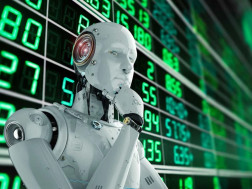The chief executive of an Indian startup laid off 90% of his support staff after the firm built a chatbot powered by artificial intelligence that he says can handle customer queries much faster than his employees.
Summit Shah, the founder and CEO of Dukaan, a Bangalore-based e-commerce company, said on Twitter Monday that the chatbot — built by one of the firm’s data scientists in two days — could respond to initial customer queries instantly, whereas his staff’s first responses were sent after an average of 1 minute and 44 seconds.
The average time taken to resolve a customer’s issue also dropped by almost 98% when they interacted with the chatbot, he tweeted.
Shah said the job cuts were “tough” but “necessary.”
Shah told CNN Wednesday that the 23 layoffs were made in September. At the time, he told Indian investment publication VCCircle that Dukaan’s shift away from smaller businesses to consumer-facing brands also contributed to the job cuts, because the switch to these customers had reduced the need for live chat or calls.
“Given the state of [the] economy, startups are prioritizing ‘profitability’ over striving to become ‘unicorns,’ and so are we,” Shah tweeted Monday, using the term for privately held startups valued at $1 billion or more.
By introducing the technology, the company has cut the cost of its customer support function by about 85%, Shah said. He added that this part of the business had long been problematic, with delayed responses and limited availability of staff at critical times, among other issues.
The tech founder said Dukaan was still hiring for multiple roles. According to the firm’s website, open positions include roles in engineering, marketing and sales.
Shah told CNN that he believed “in a future where AI and humans work together, each doing what they do best,” and that he was exploring opportunities to use AI in work involving graphic design, illustration and data science.
AI fears
The news of the layoffs comes as fears that AI will result in mass job losses have escalated eight months after Open AI released its AI-powered chatbot ChatGPT to the public.
ChatGPT has stunned users with its ability to provide lengthy, sophisticated responses to questions. Its potential uses — from writing high school essays to dispensing medical guidance — have heightened concerns that the technology could oust real people from their jobs.
Low- and middle-skilled jobs are most at risk from AI, including in construction, farming, fishing and forestry, the Organisation for Economic Cooperation and Development said Tuesday.
But the technology’s improving ability to complete certain non-routine tasks means professionals in finance, medicine and law may also suddenly find themselves at risk of automation from AI, the OECD added in a report, CNN reports.
















